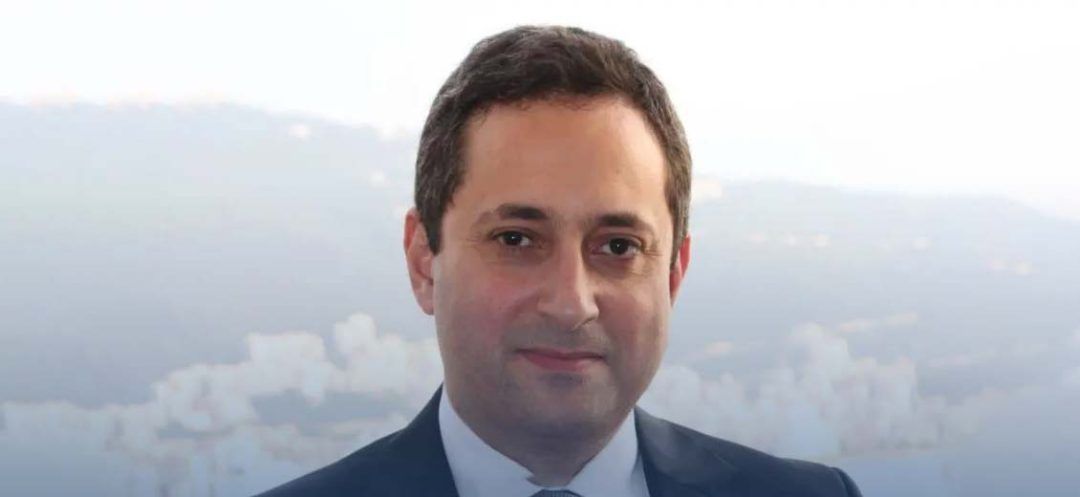
Lebanese judge Tarek Bitar resumed his investigation into the deadly 2020 Beirut port blast on Thursday, charging 10 people, including security, customs and military personnel, according to a judicial official.
The fresh charges come after a two-year hiatus in the investigation into the August 4, 2020 explosion that killed more than 220 people, injured thousands and devastated swathes of Lebanon's capital.
As reported by al-Jadeed TV station, Bitar summoned new port employees, as well as security agency officials.
Those summoned include port employees Marwan Kaaki and Mohammad Qassabieh, and security officer at warehouse No.12, Rabih Srour. In addition, Bitar summoned General Security, Army and Customs officials, including Director General of Customs, Brigadier General Raymond Khoury; Customs official, Brigadier General Adel Francis; former General Security Officer, Brigadier General Manh Sawaya; former General Security Officer Mohammad Hassan Mokaled; Army Brigadier, General Marwan Eid; and former Intelligence Director, Brigadier General Edmond Fadel.
Interrogation sessions are also scheduled for Gracia al-Qazzi, a member of the Higher Customs Council, and former Brigadier General Asaad al-Tufayli, the Head of the Higher Customs Council.
According to al-Jadeed, the interrogation sessions will begin on February 7 and will be conducted in three phases in March and April, prior to the issuance of the indictment.
No one has been held accountable for the blast, one of history's biggest non-nuclear explosions.
The probe stalled two years ago after Hezbollah accused Bitar of bias and demanded his dismissal, and officials named in the investigation filed a flurry of lawsuits to hamper it from going forward.
The resumption comes with Hezbollah's influence weakened after a war with Israel.
It also follows the election of a Lebanese president after the top position had been vacant for more than two years, with the new head of state Joseph Aoun last week pledging to work toward “the independence of the judiciary.”
The judicial official, speaking on condition of anonymity to discuss sensitive matters, told AFP that “procedures in the case have resumed.”
The official said that “a new charge sheet has been issued against three employees and seven high-ranking officers in the Lebanese Army, in the General Security, in customs,” whose interrogations are set to begin next month.
In March and April, “investigation sessions” would resume with those previously charged in the case, including former ministers, lawmakers, security and military officers, judges and port management employees, after which Bitar would ask public prosecutors to issue indictments, according to the judicial official.
Lebanon's new Prime Minister-designate Nawaf Salam – until recently the presiding judge at the International Court of Justice in The Hague – on Tuesday promised “justice for the victims of the Beirut port blast.”
Analysts suggest that Hezbollah's weakened position after last year’s war with Israel allowed Lebanon's deeply divided political class to elect Aoun last week and nominate Salam as premier on Monday.
The Beirut blast probe has been repeatedly stalled since 2020.
In December 2020, lead investigator Fadi Sawan had charged former Prime Minister Hassan Diab – who had resigned in the explosion's aftermath – and three ex-ministers with negligence.
But Sawan was later removed from the case after mounting political pressure, and the probe was suspended.
His successor, Tarek Bitar, also summoned Diab for questioning and asked Parliament, without success, to lift the immunity of lawmakers who had served as ministers.
The Interior Ministry also refused to execute arrest warrants issued by Bitar, further undermining his quest for accountability.
The public prosecutor at the time, Ghassan Oueidat, thwarted his attempt to resume investigations in early 2023, after Bitar charged him in the case.
Hundreds of individuals and organizations, including Human Rights Watch and Amnesty International, have called for the United Nations to establish a fact-finding mission – a demand Lebanese officials have repeatedly rejected.
With AFP



Comments